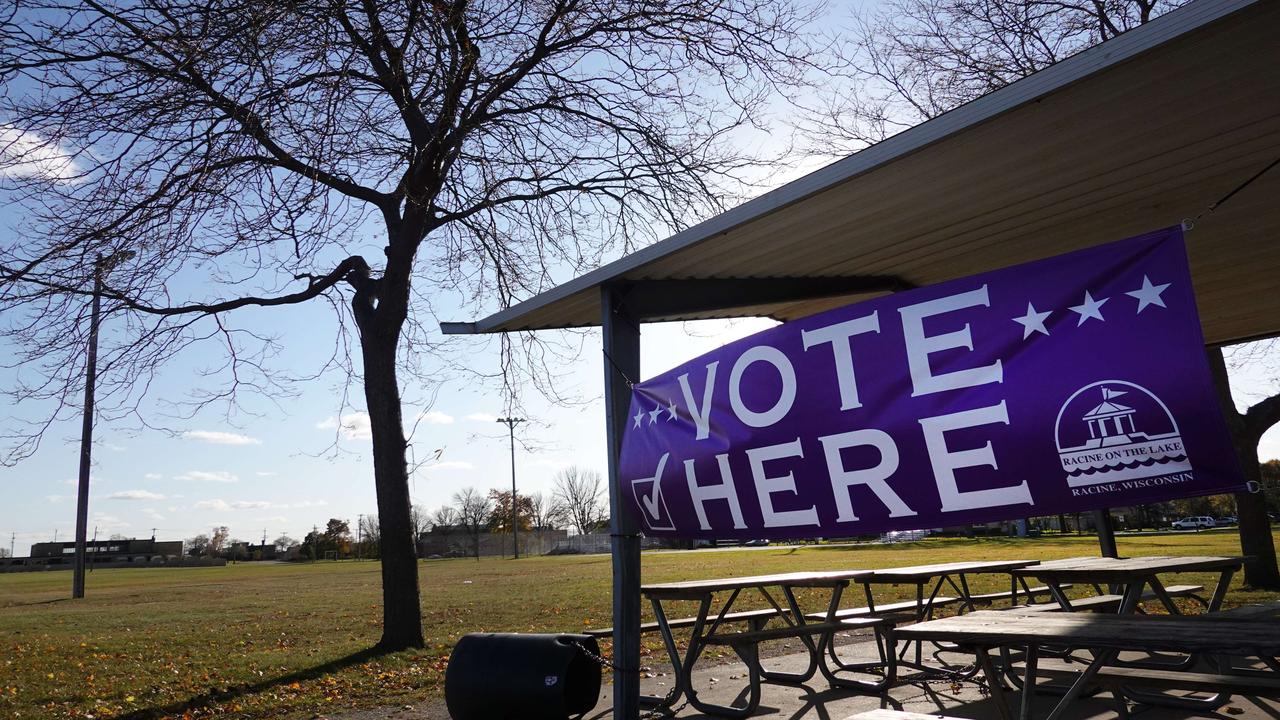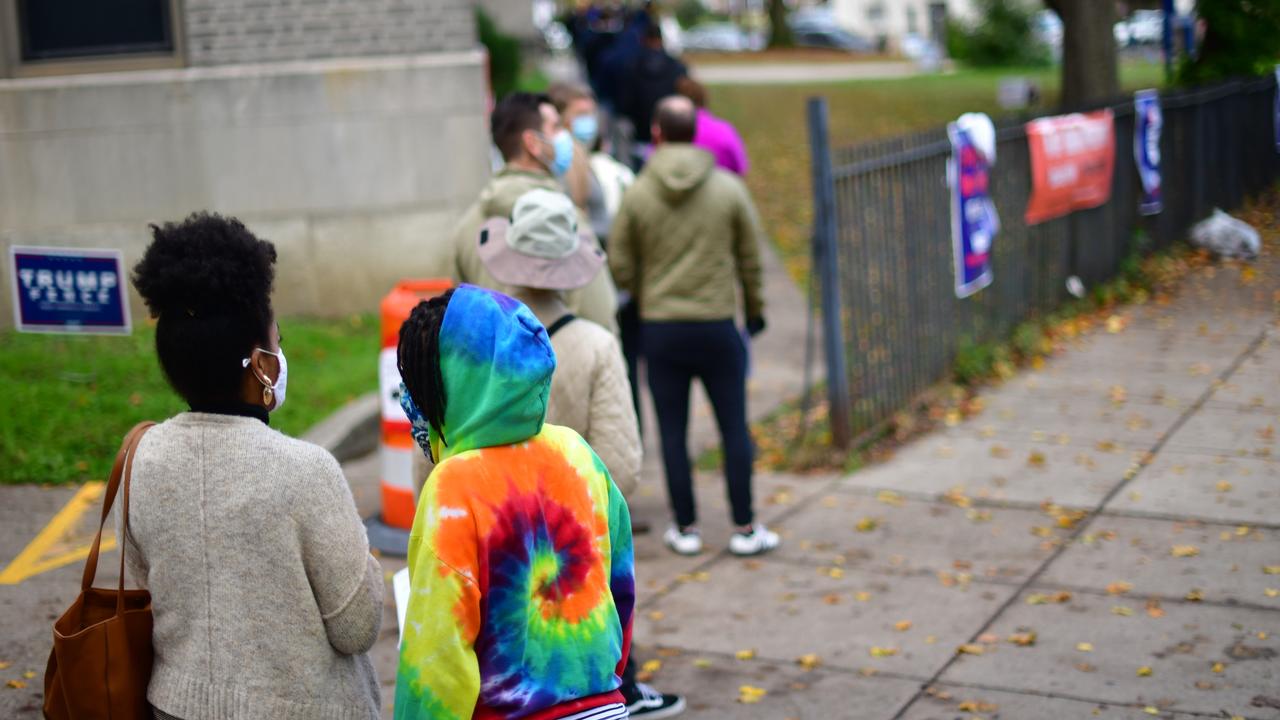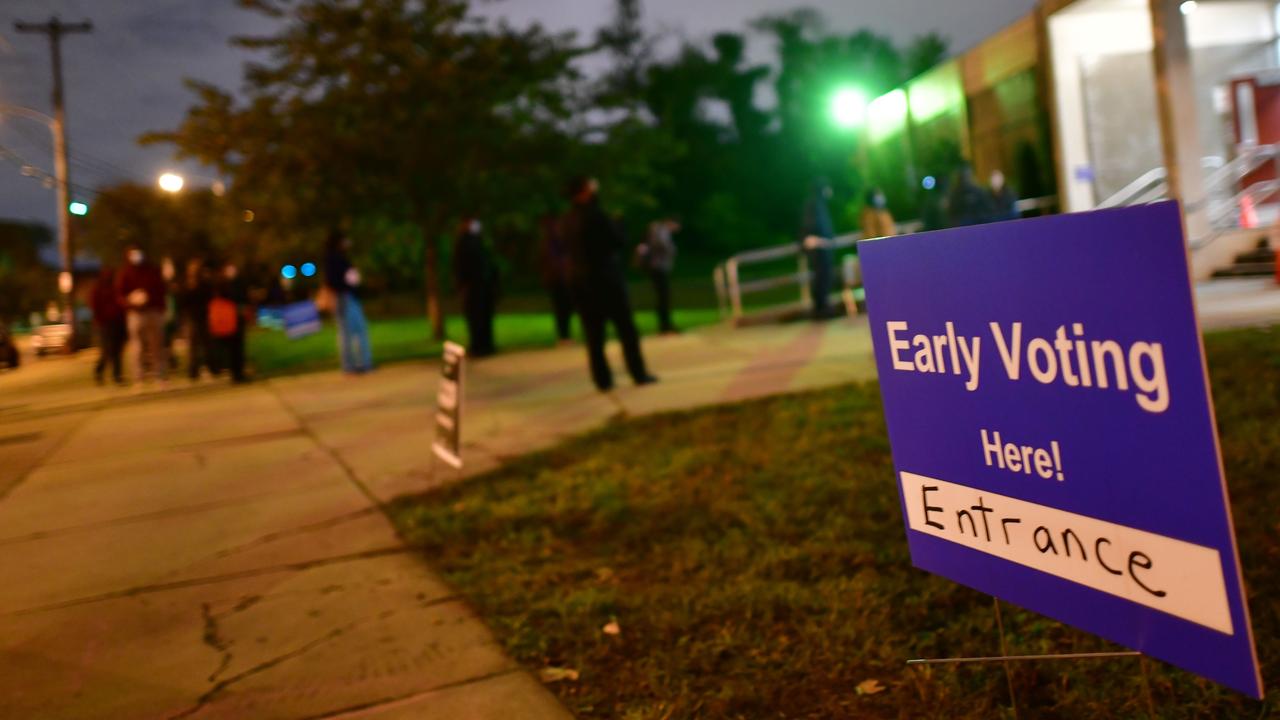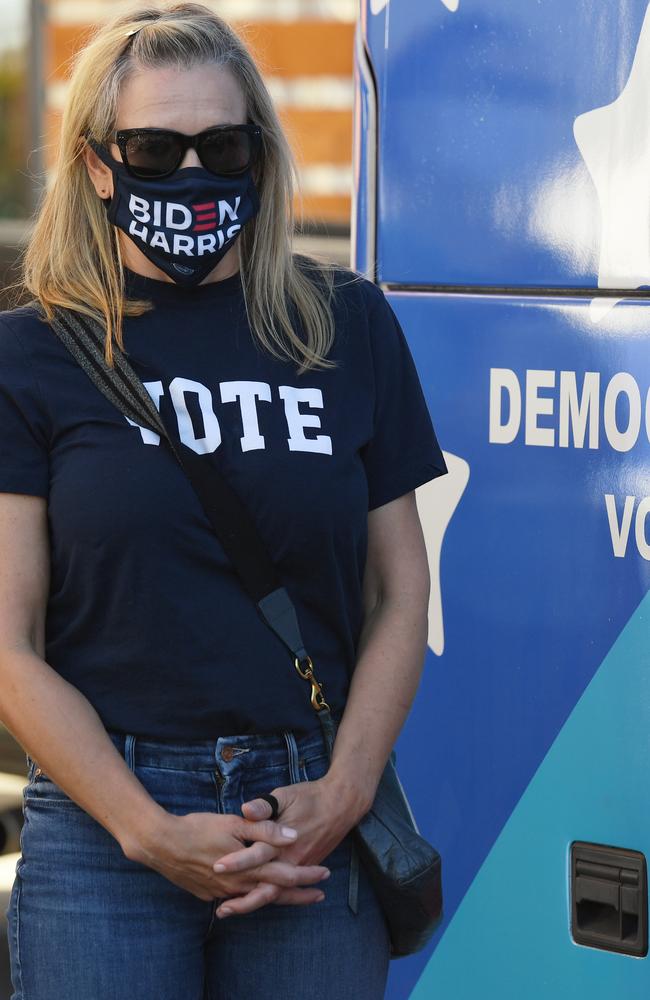Why Donald Trump can’t claim an election victory tomorrow
One day out from the election in the US and Joe Biden’s team has declared there is no way Donald Trump can claim victory tomorrow.
Donald Trump’s campaign to question the validity of Democrat votes, have them investigated and potentially declared invalid is well under way.
His alleged plan to grab victory early and then describe mail-in or later counted drive-through votes as fraudulent is aided and abetted by the very nature of how Americans vote.
And just like COVID-19 lockdown rules, different states have different rules for counting votes.
Republicans are more likely to vote in person and Democrats are more likely to vote by mail, meaning early counts could look more like a Trump tide of red than the final outcome.
Polls are indicating that when absentee or mail-in votes are all counted, it will be a win for Joe Biden.
The Trump campaign claimed on Monday that Democrats want to “delegitimise” Election Day results by “coaching” Biden surrogates to refer to a potential Mr Trump success as a “Red Mirage.”
“Biden’s political operatives have already been distributing talking points and research to delegitimise Election Day results by coaching surrogates to refer to the President’s Election Day success as a ‘Red Mirage’,” Trump’s deputy campaign manager Justin Clark said.
“The operatives are advising surrogates and media to create a smoke screen by casting blame all around — imaging postal delays or falsely claiming that mail-in ballots that have simply not been returned should be considered legitimate votes that need to be counted.”
But the Biden campaign on Monday fired back, saying that “under no scenario” could Mr Trump be declared a victor on Election Night, citing historic early voter turnout, and the way in which states count votes.
“It is no different than any other time and that is not something Trump should make you think is bad and wrong,” Biden campaign manager Jen O’Malley Dillon said Monday.
WHY A WINNER IS UNLIKELY TO BE DECLARED TOMORROW
The form of in-person voting by using mail ballots has enabled tens of millions of voters to cast their ballots before election day and is boosting what will be a record turnout.
Whatever the result, claims of vote rigging from Trump supporters will result in lawsuits, which in fact have already begun.
After a hearing on Sunday, the Texas Supreme Court rejected a bid by three Republican candidates and one activist to toss out 126,911 votes cast in drive-through lanes in Houston.
The votes in the emerging Democratic stronghold of Harris County will stay for now, but are not yet deemed safe to count after polls close on Tuesday night.
On Monday morning a federal judge threw out the request.
The four had argued that drive-through voting is illegal under Texas state law, and Harris County’s decision to allow it damages voting credibility.


RELATED: America’s confusing voting system explained
Just like in-person voting at a polling station, drive-through voters must present photo ID and sign a voting roster before being handed a sanitised voting machine.
The only difference is that it is done from inside a vehicle after pulling into a tent, instead of physically walking in.
And Harris County is just one of tens of thousands of counties whose results could be contested by angry losers on either side.
Mail-in ballots, predicted to favour Mr Biden by a margin of about two-to-one, will take longer to count, but the counting has already begun in some states.
For example North Carolina, a hotly contested battleground between Mr Trump and Mr Biden, is one of the states where mail-in ballots can be processed as the state receives them.
The US Supreme Court recently upheld North Carolina’s policy accepting mailed-in ballots that arrive as late as November 12, so long as they are postmarked by election day.
This policy is strongly opposed by Republicans who know those ballots will narrowing and then perhaps smashing a preliminary Trump-friendly election night “victory”.
But at the same time, the North Carolina State Board of Elections says it has eased the burden of tallying votes on election day by permitting an early count.
It expects that it will have processed 97 per cent or more of all ballots cast in the general election on November 3 and unofficial results will be reported by the end of election night.
In some other key swing states – like the crucial war zone of Pennsylvania – rules don’t allow election officials to start counting the mail-in votes ahead of time.
Pennsylvania’s secretary of state says it will take days to count “overwhelming majority” of votes, meaning the election could hang in the balance.
RELATED: How mail voting works in the US


At the weekend, Mr Trump blasted the expected delays in Pennsylvania as “terrible” and “very dangerous”.
“I think it’s a terrible thing where states are allowed to tabulate ballots for a long period of time after the election is over because it can only lead to one thing and that’s very bad,” he told a rally.
“You know what that one thing is.
“You’re going to have one or two or three states depending on how it ends up where they’re tabulating ballots and the rest of the world is waiting to find out.
“I think there’s great danger to it, and I think a lot of fraud and misuse can take place.”
Mr Trump has denied a claim by Axios that he is going to claim victory on the podium on Tuesday night, even as many votes remain uncounted.
The report claimed that, “Trump’s team is preparing to falsely claim that mail-in ballots counted after November 3 – a legitimate count expected to favour Democrats – are evidence of election fraud.”
In party fundraising advertisements, it has mooted the possibility “multiple states will require recounts” and asked for donations to finance ongoing ballot fights into mid-December.


Election officials in another key state, Michigan, have also warned that it will take days for a winner to be determined in the presidential race.
Winning Michigan is crucial for the Democrats to win the White House.
Along with Pennsylvania, the vote count in the states of Florida, Georgia and North Carolina will have to take place before the US knows who its new president may be.
In all, there are 13 so-called battleground states, reports CBS, which also counts in Arizona, Iowa, Ohio, Nevada, Texas, Minnesota, New Hampshire and Wisconsin.
Seasoned political reporter and the co-founder of axios.com Jim VandeHei, a veteran of The Washington Post and co-founder of politico.com, advises election watchers to chill.
“Don’t expect a quick, clear winner,” he wrote on axios.com.
“We can’t stress enough the chance of it taking days to fully count mail-in and absentee votes, to determine the real outcome in places like Pennsylvania and Wisconsin.
“The trends could look more Trump-friendly than the final outcome. This is not a partisan belief; it’s a simple fact.”
VandeHei said, “President Trump … has told us he will fight the voting rules and results all the way to the Supreme Court.
“Brace yourself for 78 days of drama and turmoil from November 4 through the inauguration.”




